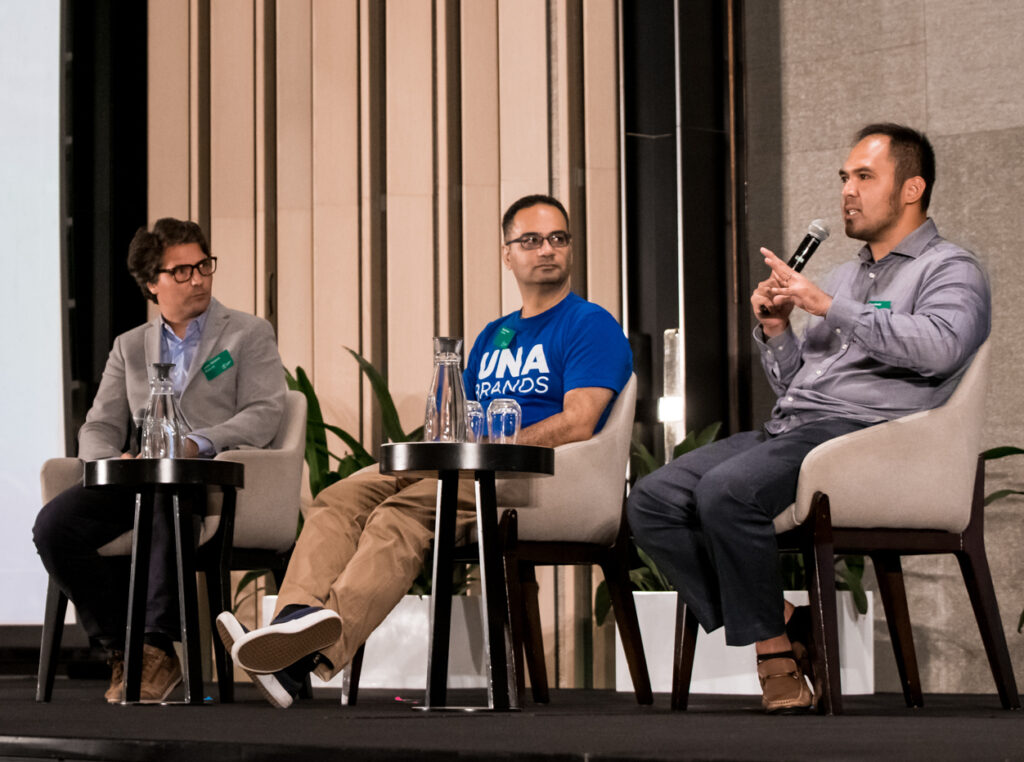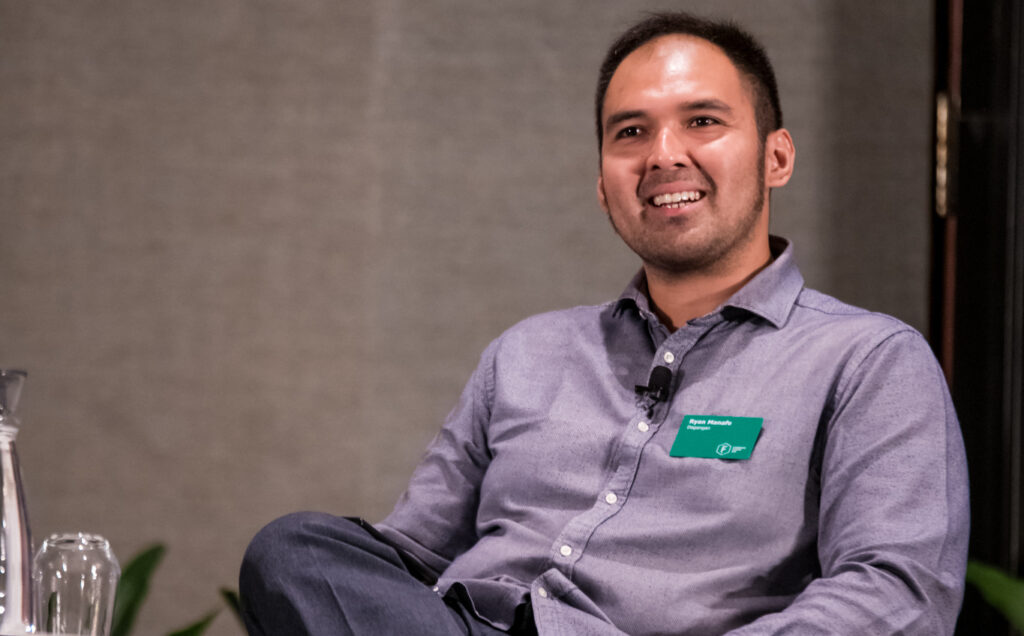Last updated on September 27, 2023
Kylan Gibbs’ Inworld brings video game characters to life with AI. See our FF Rising Stars for 2023!
Kylan Gibbs’ Inworld is transforming the way we consume media and video games.
Inworld uses AI to create more interactive non-player characters (NPCs) in video games like Skyrim and Grand Theft Auto V, giving them contextual awareness and personalities, thoughts, memories, and behaviours that mimic the social nature of human interaction.
Inworld raised $50m at a $500m valuation in August this year in a funding round led by Lightspeed. Kylan’s goal is to leverage AI to turn consumers of media and entertainment into co-creators.
Before Inworld, Kylan led the development of generative models at DeepMind and established the ML practice at Bain & Company.
Founded: July 2021
Country: USA
No. of employees: 70
Stage: Series A
Total funding raised: $100m+
Investors Include: Lightspeed, Stanford University, M12, Intel Capital, Samsung Next, Meta, Disney Accelerator, S32, First Spark Ventures, Founders Fund, Kleiner Perkins, CRV, BITKRAFT, The VR Fund, Danny Lange, Neal Stephenson
Why did you decide to start Inworld?
Two trends collided to create the incepting moment for Inworld: The generative AI explosion and the surge in time spent in virtual worlds.
Predominantly in games, but also in other consumer and entertainment domains, people are spending more and more of their time in virtual worlds that still remain devoid of the type of social interaction and user control that we expect in the real world.
Humans are social creatures and we believe that no experience will be maximally engaging until it serves that aspect of our nature. And, thankfully generative AI came to fruition at the right time to deliver the technical solution to how to deliver on that need.
What do you want to achieve?
We want to make media and entertainment a co-creative experience. For the history of media, consumers have had little agency in the content they engage with. People sit down and ‘consume’ media; they take it in but have little influence over it.
Games are the obvious first place to see this innovation, where you enter a living world, with a cohesive story and world, but can behave freely within it, while still getting to experience the designed storylines and narratives set out by writers and designers.
Consider creatives instantiating entire worlds and stories, and then allowing users to jump within them and experience them from any angle they feel most compelled to, while still drawing out common, shareable moments just as we do when we travel in the real world. Then, consider how film, podcasts, augmented reality experiences, even novels and written content would change if the user were able to dynamically engage – we don’t want to reproduce existing forms of media, but rather introduce completely new forms of media never before possible.
What’s your biggest challenge right now?
Getting our product in the hands of creatives and game designers who can push it to its full potential. We’re ultimately providing a platform, but it’s the creators who realise the potential by designing new mechanics, new experiences, and ultimately bringing new visions to life they’ve never been able to bring into reality before.
Who has helped you most in your journey so far?
Mortiz Baier-Lentz, our primary partner at Lightspeed who also helped lead our Seed round while at Bitkraft, has been a devoted advocate and supporter from the very start and we’re incredibly grateful for the connections, support, and enthusiasm he’s brought to our journey.
What’s the best and worst advice you’ve ever received?
Best advice: Create something that has never been possible without the latest technology.
Worst advice: Take a known problem and make a cheaper solution.
Startup lore tells you to find a problem and then create a cheaper/faster solution. You might find yourself on a low-risk track, but likely with a defined ceiling. If there is a problem already being solved, you’re introducing efficiency but no innovation when you create a cheaper solution.
Sure, you can make money this way, but you’re not really expanding the space of the possible. Also, you’re going to always operate in a zero-sum space, where your success means battling others.
If you want to operate with an infinite ceiling, always produce something never possible before, expand the pie and own the new parts you created. You’ll be rewarded for defining the frontier versus fighting for existing portions.
What tech would you not be able to do without?
Bear Markdown Notes. Simplicity wins!
Read more about the founders whose ideas have world-changing potential. Check out our FF Rising Stars for 2023.
 All Posts
All Posts


